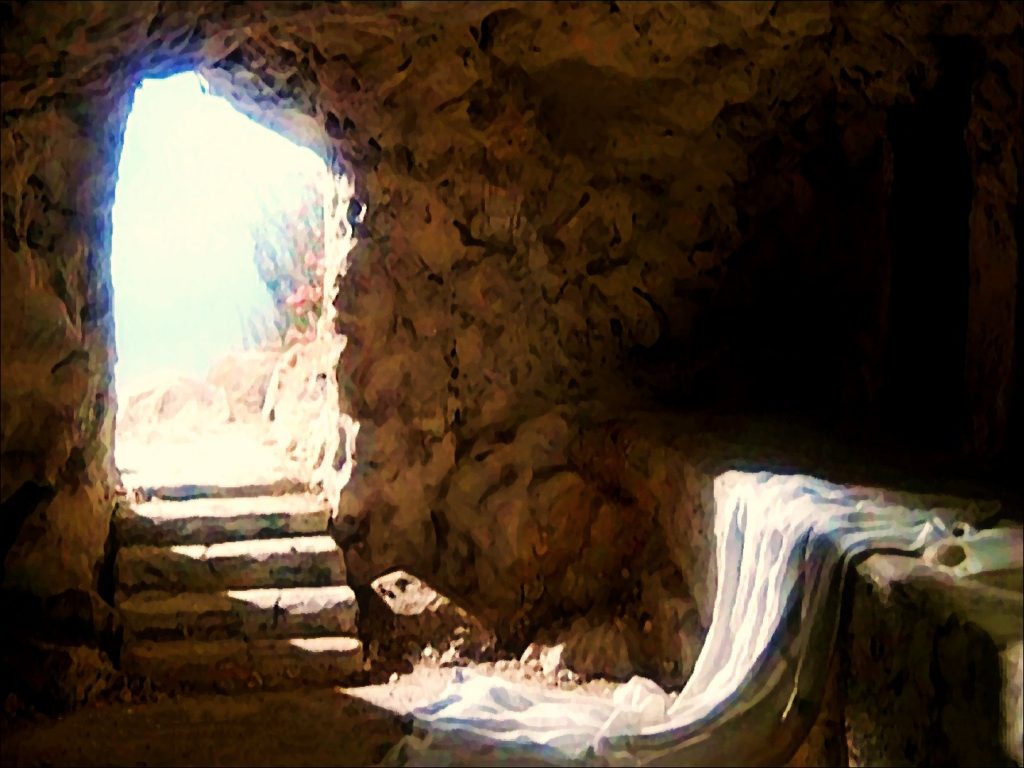April 24, 2011
Romans 6:3-11 / Matthew 28:1-10
Easter is certainly a joyful feast. But the beginning of Easter is emptiness. There is not a gospel writer who tells the story of Easter by beginning with the risen Christ. Every gospel writer begins with the empty tomb. The gospel we just heard from Matthew proves this point. Mary Magdalene and the other Mary come. But what they first see is not Jesus but the empty tomb, and they hear the angel’s announcement. Only then do they encounter the risen Christ and embrace him.
First comes emptiness; then comes rejoicing. First comes absence; then comes glory. Now Easter begins with emptiness because life begins with emptiness. Every time we take a step forward in life we must leave something behind. Before we can embrace new life, we must empty ourselves of the life we already possess. Before we can take our first breath, we have to leave the comfort of our mother’s womb. Before we can commit ourselves to someone in marriage, we have to let go of our independence. Before we can respond to a vocation or a career, we have to let go of all the other things that we might be called to do. If we are going to receive new life, we must be empty enough to accept it.
This is why Jesus asks us not to fill our self up with other things. If we fill ourselves and are satisfied, if we fill our lives with resentment, anger, jealousy, or grief, Christ is still risen. But we might not be able to accept the Good News because there is no room for it. If we fill up our lives with goods and gadgets, if we spend our time with stratagems to increase our own importance, God still loves us. But we can never appreciate that love because there is no space to take it in. This is why Jesus spent so much of his time talking to those who were poor, hungry, and rejected. Jesus knew that they were empty enough to hear him. It is the suffering, the grieving, the poor, who have more than enough room to let God’s love in.
St. Paul certainly knew this truth because he used it to describe our Baptism, our entry into Christ. He said that first we must die with Christ in the waters of Baptism so that we could rise to new life. We first must be buried with Christ, emptied by Christ of whatever holds us back so that we might rise from the waters and walk in the newness of life.
So if Easter begins with emptiness, the way to celebrate Easter is to locate our own emptiness. That could be the emptiness of loss because someone who we love is no longer with us. It could be the emptiness of fear: the fear of a medical condition, the fear of deteriorating health because of advancing age, or the fear of economic hardship. It could be the emptiness of disappointment: disappointment in ourselves or disappointment in others in whom we trusted. It might simply be that we have no direction in life, we do not know where we are going, and we know we need to find a direction soon. Whatever your emptiness is, do not deny it—claim it. Emptiness is not a liability. It is an opportunity. When we claim our emptiness we own our dependence on God. When we claim our need we open the door to Easter.
The Risen Christ calls us to new life. Let us stand before him today in our emptiness and let his resurrection in.
More Easter Homilies are here.

